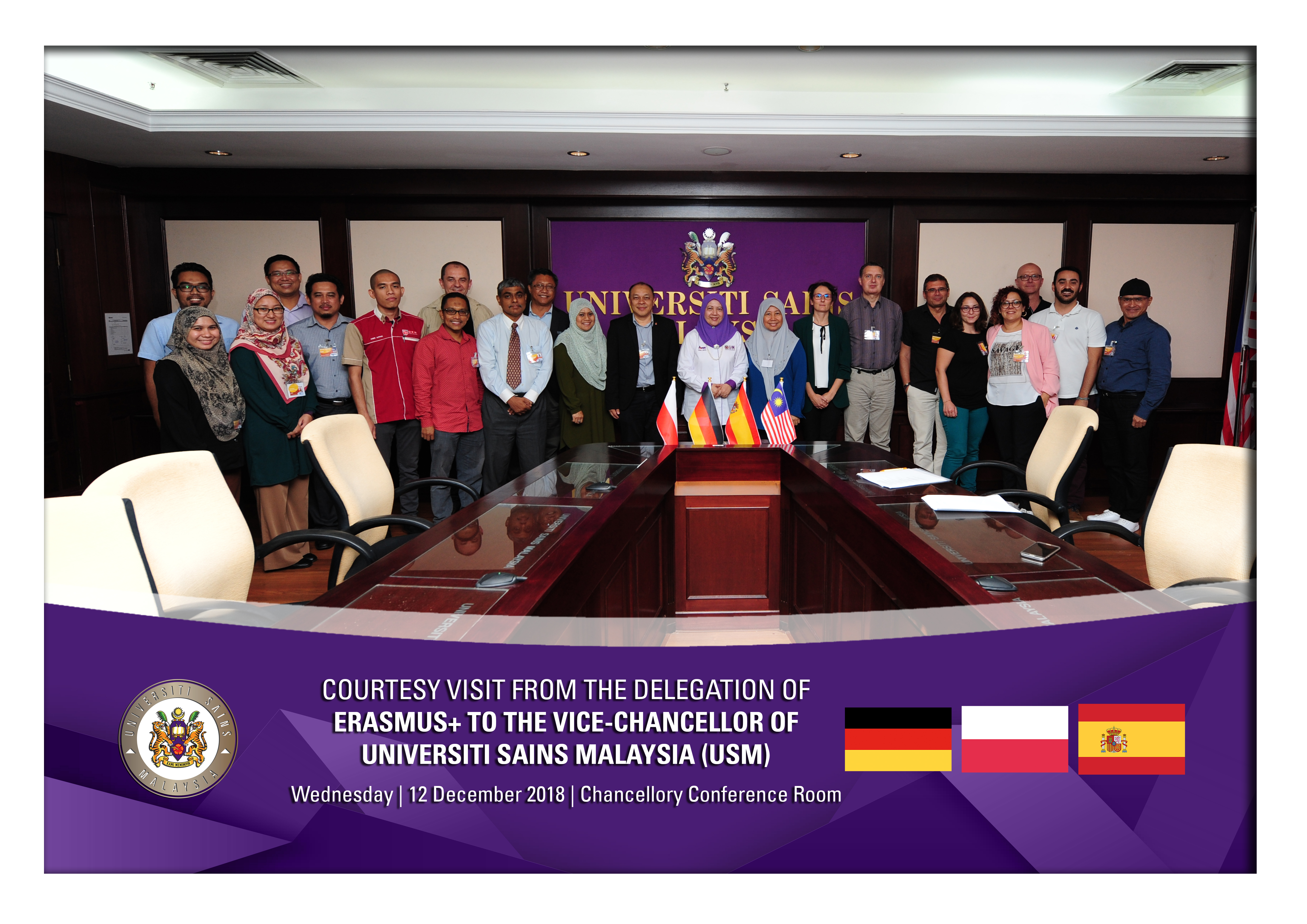Erasmus+ Project Making 4.0
Improving Malaysian Higher Education Knowledge towards a Wood and Furniture Industry 4.0

Visit the website http://making40.eu for more info.
In the past 40 years, Asia has become one of the world’s most important regions for industrial manufacturing. This development started with comparatively simple manufacturing processes. The combination of know-how, speed, and a high degree of adaptability is the outstanding characteristic of the successful industries in Asia. But, how to ensure this development path continues to further grow the economy and achieve a higher standard of living for everyone? The key trend is Industry 4.0. It will change how we work: robots that cooperate with people will be able to learn and reproduce simple process steps simply by watching. Information will be available and processed in real-time along the value chain. Additive manufacturing implemented in a wide kind of sectors to enhance industrial processes in quality and time.
It is obvious that Industry 4.0 is not only a revolution for the machine but will also significantly change job profiles and the skills required. New players and new business models will emerge, while others will most probably disappear. This fundamental and necessary change cannot be driven by companies alone. Universities must play an important role at the hour to introduce new skills related to Industry 4.0. Likewise, the Ministry of Education Malaysia has proposed major reforms to Malaysia’s higher education system to accelerate the positive upward trajectory of the system.
Thus, it was launched the Malaysia Education Blueprint 2015-2025 built on five aspirations: access, quality, equity, unity, and efficiency. Different shifts are defined. The first one is to solve the mismatch in the supply and demand of graduates, with employers reporting that graduates lack the requisite knowledge, skills, and attitudes. Due to that observation, the Ministry proposes enhancing the student learning experience by expanding industry collaboration in the design and delivery of programmes. In the same way, another shift is to foster the Quality Technical and Vocational Education and Training (TVET) graduates provided by Universities. To achieve that, the Ministry will intensify industry involvement enabling it to lead curriculum design and delivery through new partnership models.
Other objectives are related to foster lifelong learning in supporting the professional development of all Malaysians, facilitate the development of innovation ecosystems in selected strategic areas that are critical to the economic growth, and expand their international recognition. On the other hand, the timber industry, which includes the woodworking and furniture sectors, is one of the major contributors to the Malaysian economy, estimated in nearly €4.0bn of exports and about 300,000 workers. In particular, the furniture sector has quadrupled its export values since 1995. In fact, in 2017 Malaysia was ranked as the 9th World country in furniture exports and 17th in production, regarding the World Furniture Outlook 2018 published by the Centre for Industrial Studies, CSIL. Thus, the Ministry of Plantation Industries and Commodities in collaboration with the Malaysian Timber Industry Board (MTIB) launched the National Timber Industry Policy 2009-2020 (NTIP). The NTIP established innovation and technology, and human capital development, among others, as the main challenges of the industry. It is estimated that at least 9.810 workers will need to be trained annually, 3.450 only in the furniture sector, and 3.600 in the panel production. The NTIP pointed that there is a need to strengthen the competence and knowledge to embrace cutting edge technologies and higher value-added manufacturing activities and highlights on page 86 that “a number of universities and polytechnics including UPM, UiTM, USM, and UMS provide management-level training for the timber industry. The graduates from these institutions, however, either do not seek employment in the timber industry or do not have the skills required by the timber industry. Hence, there is a need for these institutions to review their training syllabus to match the requirements of the industry.”
Similarly, the Academy of Sciences Malaysia in its Mega Science 3.0 report dedicated to the furniture industry sector, highlights that “changes in education and training are required to equip the future workforce with new skills required in the future”. Moreover, the white paper “Is Malaysia ready for industry4.0?” points that human resources are one of the most important challenges in the manufacturing sector for upgrade it, and it is expected that during the first quarter of 2018 the Ministry of International Trade
Main Objective
To develop an innovative Master’s Degree to modernize the current training offered in wood and furniture technology processes around Industry 4.0 in Malaysia.
Specific Objectives
- To define how higher education empowers future workers of the Malaysian wood industry could be improved in comparison with the current higher education offered and the technologies already implemented in Europe.
- To create an innovative learning pathway able to provide higher education students the most important competencies and skills related to Industry 4.0. This new learning pathway will aim to improve the level of specific and transversal competences and skills, with particular regard to those relevant for the labour market in the furniture sector, such as management, entrepreneurship, language competences, and leadership.
- To promote cooperation activities, providing more opportunities for students to gain all the specific and transversal skills required in the wood and furniture industry and involving them along with partners staff and stakeholders in shaping the outcomes and ensuring their relevance.
- To push active collaboration and partnership between higher education institutions of Europe and Malaysia (UPCT, WULS, KIT, UPM, UiTM, USM and UKM), Technological centres (CETEM) and the industry (MTIB), in order to obtain an impact on creativity, modernisation and internationalisation of higher education in the sector.
- To boost the 4th Industry Revolution in the timber industry of Malaysia, as a way to introduce the latest technological trends in all manufacturing Asian industries, reaching a smart and sustainable industry.
- Hits: 2101